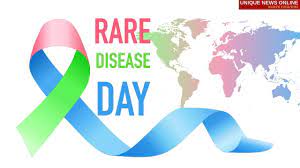World Diabetes Day (WDD) became an official day in 2006. It was established in 1991 by the International Diabetes Federation with support from WHO in response to growing concerns about the health and economic threat posed by diabetes.
The theme for World Diabetes Day 2021-23 is “Access to Diabetes Care”. Many people do not have access to diabetes care, nor have ongoing support to manage their condition and avoid complications.
Diabetes has been increasing in prevalence over the last few years. It is estimated that by 2025, there will be 422 million people suffering from the condition worldwide – an increase of more than 40% on current figures according to the International Diabetes Federation 2021.
Diabetes is a chronic disease that occurs either when the pancreas does not produce the hormone insulin or when the body cannot use the insulin it produces to regulate glucose levels.
Insulin is a hormone produced by the pancreas. Most of the foods we eat are broken down into glucose (sugar) and released into the blood. Insulin acts like a key that allows glucose from the food we eat, pass from the bloodstream into the cells in the body to produce energy.
Over the long-term high glucose levels are associated with damage to the body and failure of various organs and tissues.
This year 2021 marks 100 years since the discovery of insulin by Sir Frederick G Banting, Charles H Best and JJR Macleod at the University of Toronto and it was subsequently purified by James B Collip. The centenary of the discovery of insulin presents a unique opportunity to bring about meaningful change for the millions of people living with diabetes and those at risk.
CAUSES OF DIABETES
The causes of diabetes are majorly unknown, but some factors put one at risk. They include;
- Age
- Family history
- Genetics
- Insulin resistance
- Overweight
- Sedentary lifestyle – lack of exercise
- Pre-existing medical condition such as Hypertension.
TYPES OF DIABETES
There are three main types of diabetes.
Type 1 diabetes: It is known as insulin-dependent diabetes or juvenile diabetes. It develops at any age but occurs most frequently in children and adolescents. In type 1 diabetes, the body produces little or no insulin, which means you need daily insulin injections to maintain blood glucose levels under control.
Type 2 diabetes: It is known as non-insulin-dependent or adult-onset diabetes. It is more common in adults and accounts for around 90% of all diabetes cases. In type 2 diabetes, the body does not make good use of the insulin that it produces. The cornerstone of type 2 diabetes treatment is a healthy lifestyle, including increased physical activity and a healthy diet. However, over time most people with type 2 diabetes will require oral drugs and/or insulin to keep their blood glucose level under control.
Gestational diabetes (GDM): is a type of diabetes that consists of high blood glucose during pregnancy and is associated with complications to both mother and child. GDM usually disappears after pregnancy, but women affected, and their children are at increased risk of developing type 2 diabetes later in life.
Impaired glucose tolerance and impaired fasting glycaemia: Impaired glucose tolerance (IGT) and impaired fasting glycaemia (IFG) are intermediate conditions in the transition between normality and diabetes. People with IGT or IFG are at high risk of progressing to type 2 diabetes, although this is not inevitable.
GENERAL SYMPTOMS OF DIABETES
The general symptoms of diabetes include:
- Increased hunger
- Increased thirst
- Weight loss
- Frequent urination
- Blurry vision
- Extreme fatigue
- Presence of glucose/ Ketones in the urine
- Loss of sensation
- Sores that do not heal
- Unexplained weight loss
TREATMENT OF DIABETES
Diabetes can be treated and its consequences avoided or delayed.
The various approach to lifestyle modification includes;
- Healthy Eating
- Physical Activity
- Monitoring of blood sugar level and taking medications
- Keep to Doctor’s Appointment
- Pay attention to your hygiene including protecting your feet.
- Stress management
COMPLICATION OF DIABETES
- Hypoglycemia
- Hyperglycemia
- Diabetic keto acidosis
- Blindness
- Organ failure i.e., heart, kidney, etc.
- Depression
- Dementia
- Infection
- Loss of body part (amputation)
- Death
PREVENTION OF DIABETES
Type 1 diabetes is not preventable because it is caused by a problem with the immune system. Some causes of type 2 diabetes, such as your genes or age, are not under your control either.
Yet many other diabetes risk factors are controllable. Most diabetes prevention strategies involve making simple adjustments to your diet and fitness routine.
If you have been diagnosed with prediabetes, here are a few things you can do to delay or prevent type 2 diabetes:
- Get at least 150 minutes per week of aerobic exercises, such as walking or cycling.
- Cut saturated and trans fats, along with refined carbohydrates, out of your diet.
- Eat more fruits, vegetables, and whole grains.
- Eat smaller portions.
- Try to lose 7 percent Trusted Source of your bodyweight if you are overweight or obese.
- These are not the only ways to prevent diabetes. Discover more strategies that may help you avoid this chronic disease.
CONCLUSION
People with diabetes must maintain good control of their condition to help reduce and avoid long-term complications. Better food choices, increased activity, and weight loss will go a long way in prevention. If you are at risk, have your blood sugar tested and follow your doctor’s advice for managing your blood sugar to live a normal life as possible.









